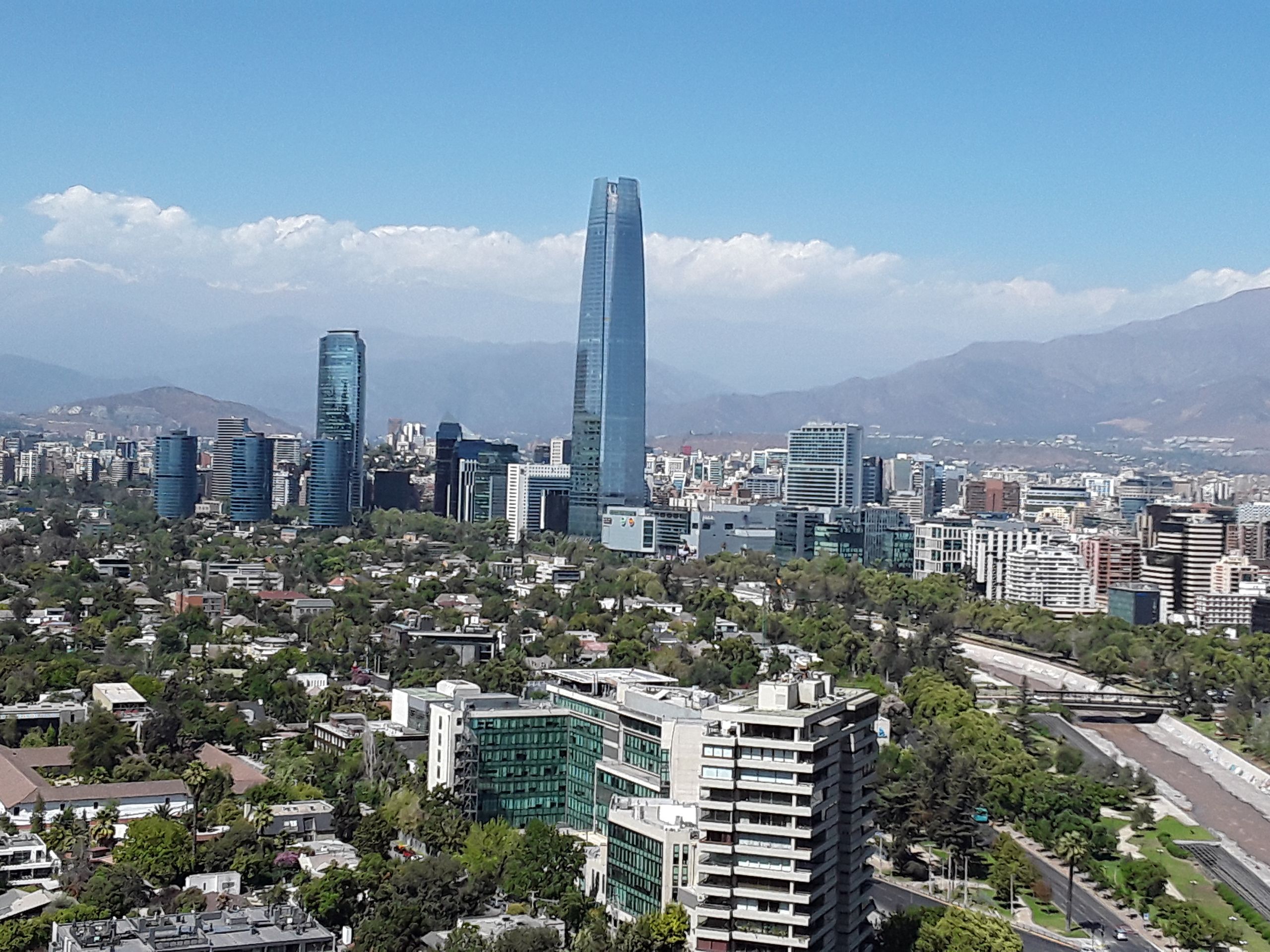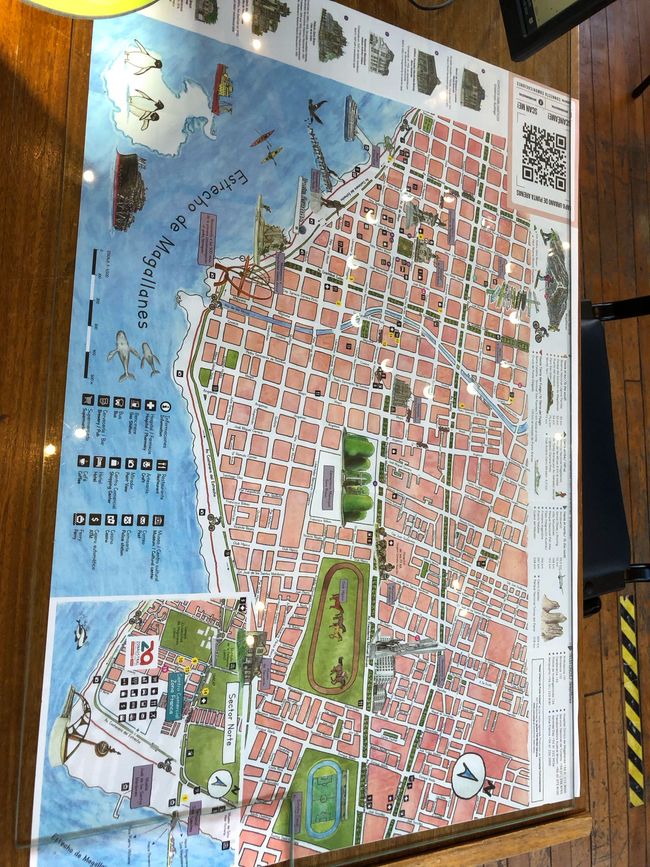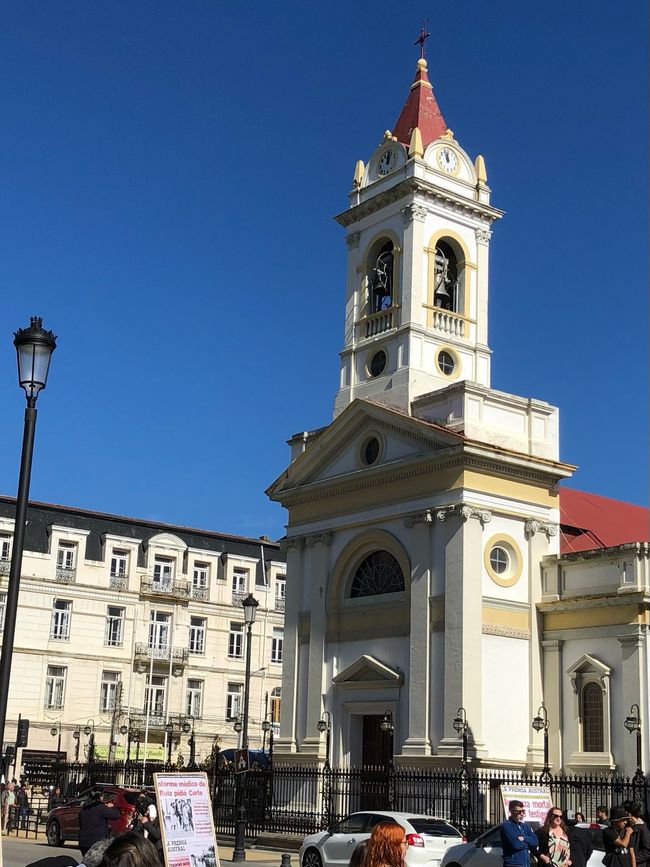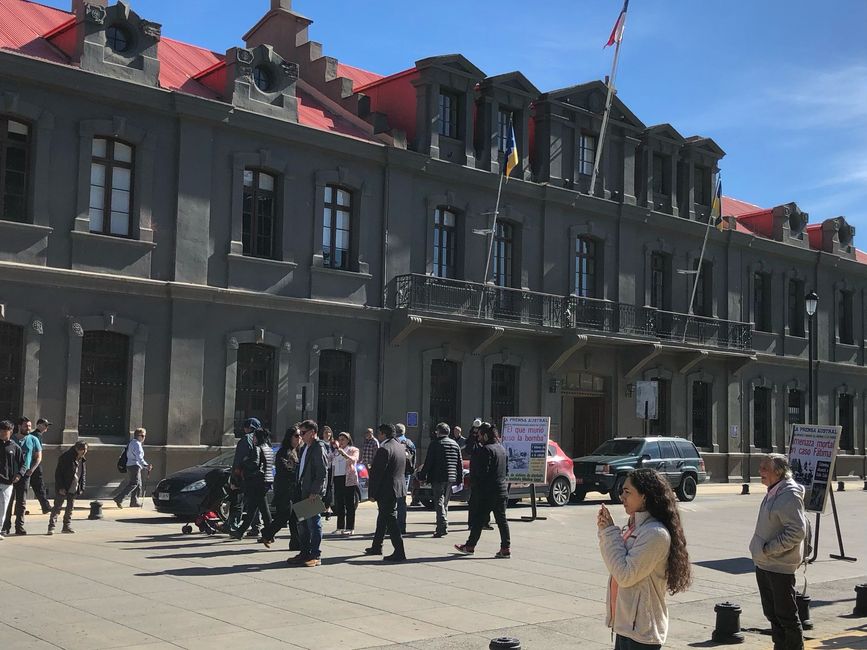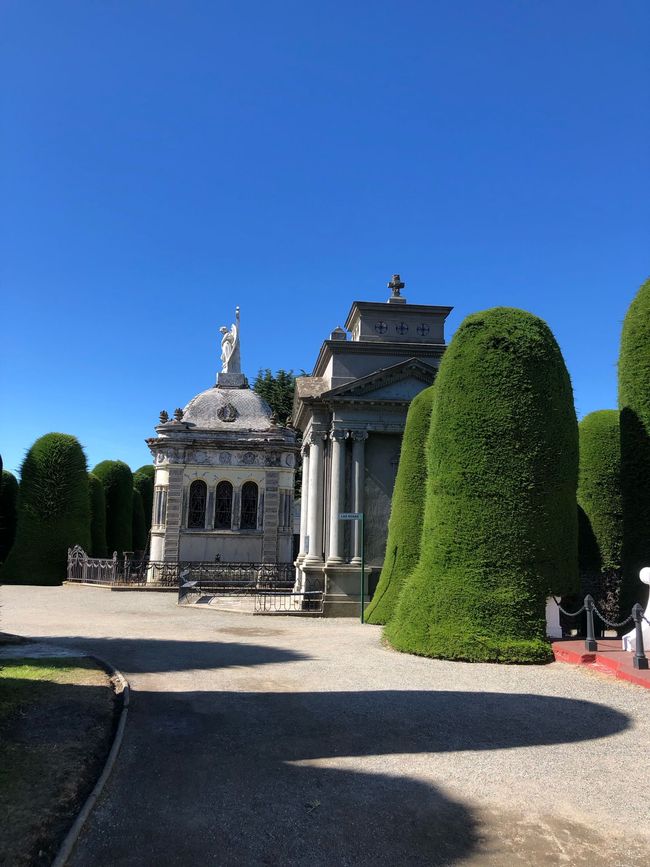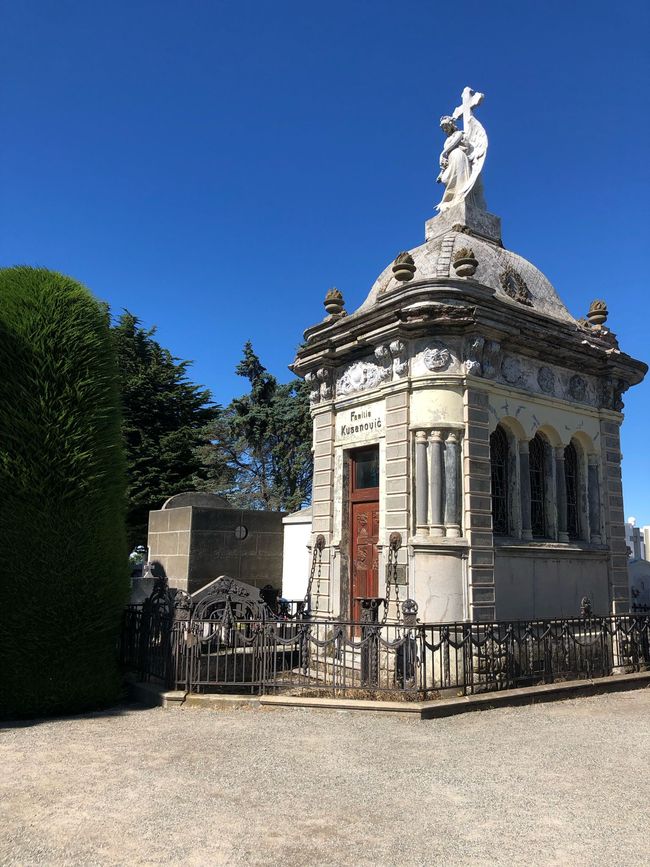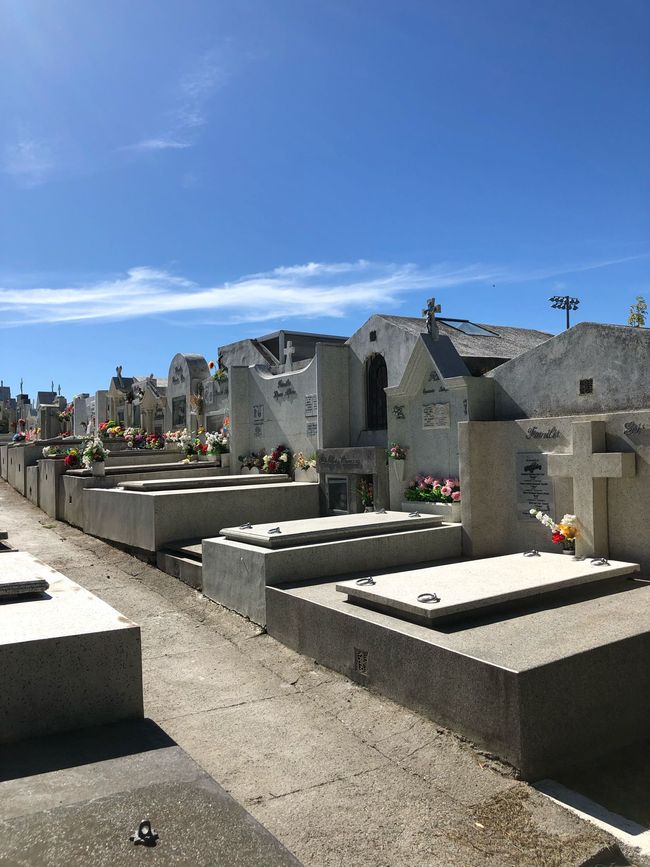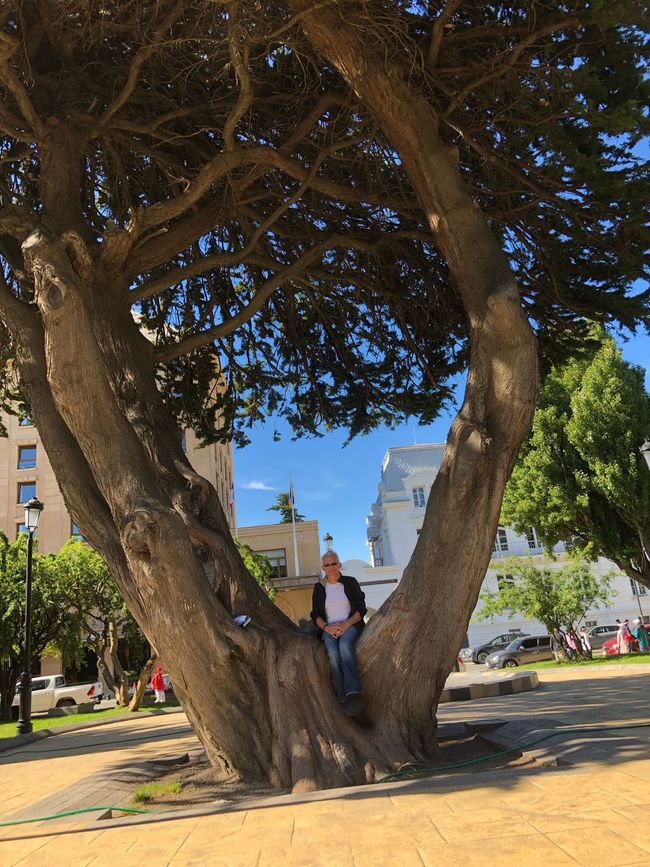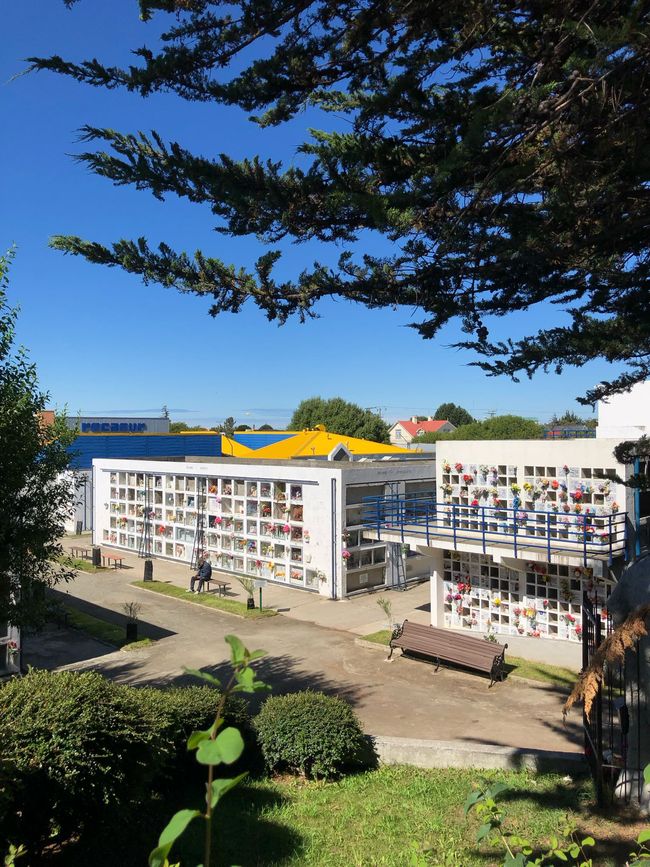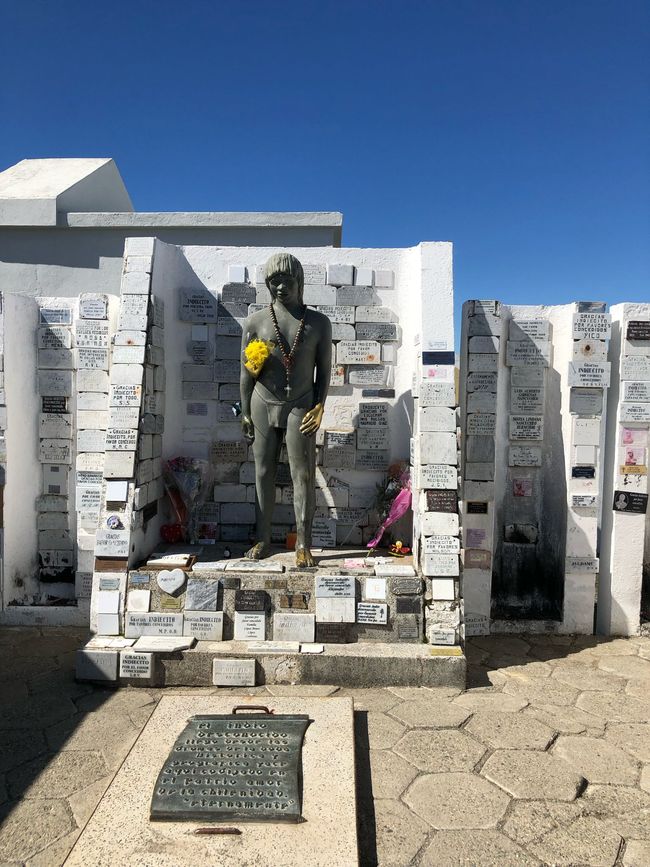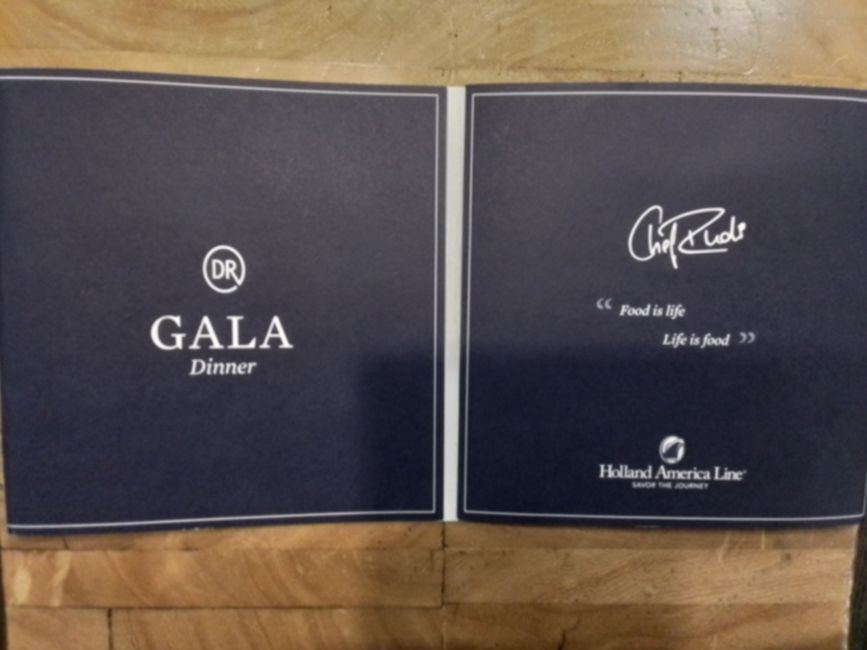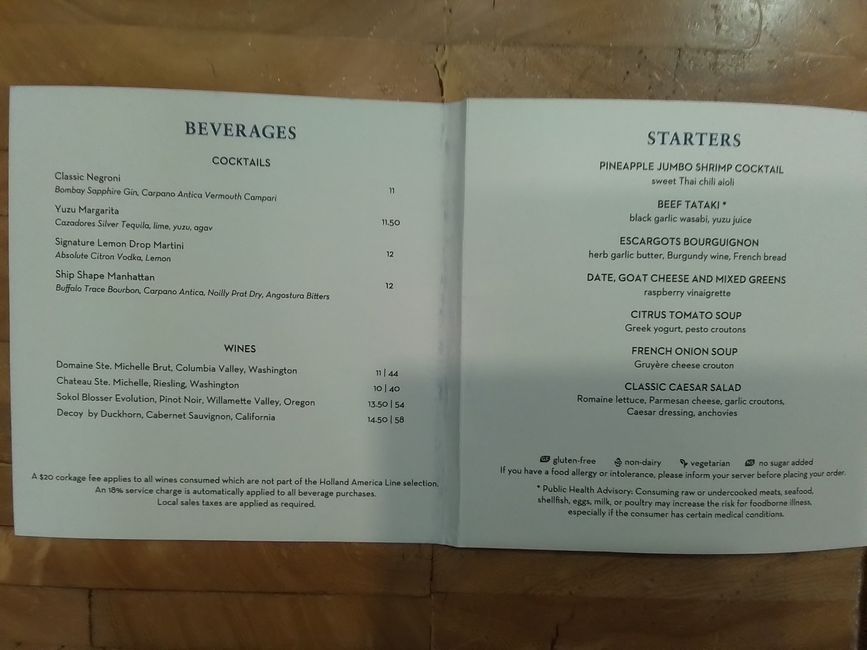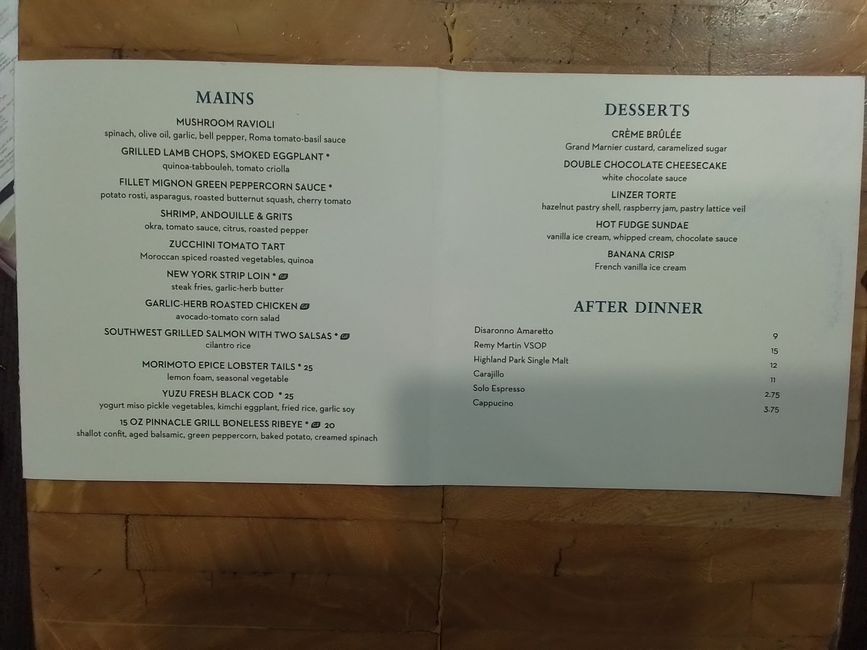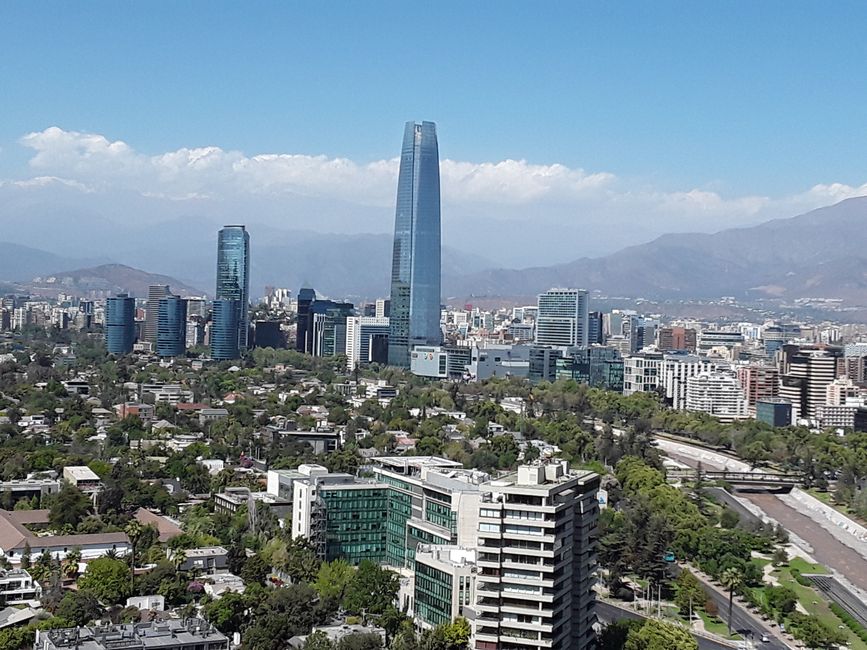
Chile 2. + Kreuzfahrt-Suedamerika
vakantio.de/chile-iikreuzfahrt-suedamerika
02/26/2024 Punta Arenas
Publié: 09.03.2024
S'inscrire à la Newsletter
Today, after a long trip through the Magellan Channel, we arrived in Punta Arenas at 6:00 a.m. We hadn't booked anything here because we weren't that interested in the offers, mainly penguin watching. We had seen penguins so many times on our other trips and "piguin island" in Australia certainly can't be topped! So we set off into town on foot. A tourist highlight, the cathedral at Plaza Armada was unfortunately closed. The man in the tourist center said it would only ever be opened for mass, otherwise the many homeless people and beggars would populate the forecourt and the church entrances!? A contradiction that is simply accepted! If not near a place of worship, where else should the outcasts go and find hope? The next attraction, a publicly accessible villa owned by a sheep farmer who became very rich in the early years of the wool boom, was also closed. This house has been under restoration since 1997. At least it's been closed since the year!? Then the last highlight we had was the cemetery!
It's said to be one of the most beautiful in all of South America and we had to cross the small town to get there! An entry fee was charged at the entrance, which we were able to halve again with our note "dos adultos mayores" (two old adults (pensioners)). Nobody has asked for proof yet! The reader can decide whether this speaks for or against us. The cemetery, laid out in a checkerboard pattern, was really impressive. On the one hand, by the peace that this complex radiated and by the green rows of trees that were planted along the main paths. They were trimmed like hedges and often adapted to the graves. Well, these final resting places didn't have much to do with graves as we understand them. I mean, I also know mausoleums from Germany, but here they were often reminiscent of small chapels or churches and probably served more as status symbols. Entire extended families had buried their relatives here for years. Through doors and windows we could look into interior rooms that were illuminated by colorful windows, in the style of church windows. Often only black marble was used for construction, or large statues made of white marble guarded the place. What riches these clans had previously amassed? And all because a governor once had a great idea:
Punta Arenas had become an important port when the gold rush broke out in the western United States. All ships had to go around Cape Horn and call at this base before continuing north. At the end of the gold rush or was it the Panama Canal?, Punta Arenas quickly lost its importance. Then the government representative came up with the idea of bringing 2,000 sheep from the Malvinas (Falkland Islands) and promoting sheep farming. At peak times, up to 2 million sheep are said to have lived in the area. And a lot of money must have been earned.
But in the cemetery there were also graves of famous people, which were marked on the map that everyone received at the checkout. Of course we could also see the graves of "normal" citizens. They were mostly set into high walls on each floor and you could only reach the upper floors via stairs. This resulted in galleries with railings that do not fit our image of a cemetery. And there was also the grave for the unknown dead of the indigenous peoples. The "Indian" depicted - the word fits here - had a golden hand or a golden foot? These abnormalities must have arisen from frequent touching (blessings?).
Then we made our way home to the ship. I'll report on the alcohol smuggling on board later!? So read on!
On board we still had time for physical training before we went to the dining restaurant. This is a full-service restaurant that also offers extra menus and extra drinks, which the visitor does not have to order. First we were asked at reception how many places we would need. It was then clarified whether we preferred to sit in isolation or at a group table. The lady looked at her screen, called a waiter, who then took us to our table. As for drinks, we could have stuck with water and lemonade as usual, but we treated ourselves to a glass of white wine and a Gintonic. Then the menu was brought to us and the waiter apologized to us because he couldn't find one in German, but Dutch was fine too! There was a small card on the table that told us the name of the main waiter and also the name of the second server. The drinks were brought by a third assistant. Everything happened in a friendly and relaxed manner. The atmosphere. Nice! We enjoyed our three-course menu, which we put together ourselves. In terms of cuisine, there was actually nothing different than on the Lido deck, but the way it was laid out visually and the way it was served was special. But we didn't want to eat like that every day.
That's how this day ended and as we set off we were able to see the city reflected in the sea for a bit before we turned into the Cockburn Channel, which then merged into the Beagle Channel. Then we take an early rest with a book, we're always pretty tired!
S'inscrire à la Newsletter
Répondre
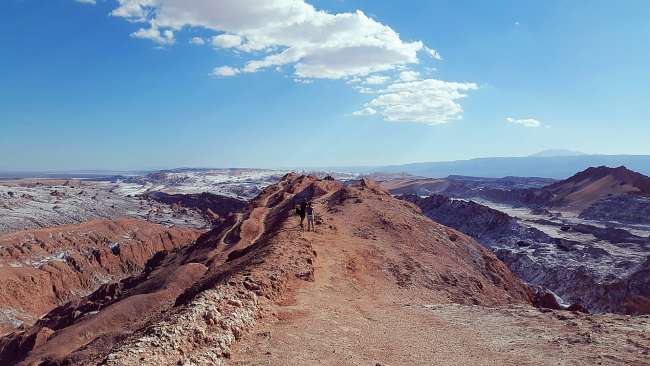
Rapports de voyage Chili
